This year CEL has promoted active making and creative origami and lego workshops to connect with the Fusion strands of Education, Research and Professional practice. We were delighted to hear about the Annual International Graphic Novel and Comics Conference at BU. Dr Julia Round reports here with additional photos of ‘sketchnotes’ ( a superb visual note-taking process) by @Johnmiers and Paul Fisher Davies @CrosbieTweets For more information on the conference itself and our previous events, please see our website www.internationalgraphicnovelandcomicsconference.com.

thanks to Paul Fisher Davies @CrosbieTweets

thanks to John Miers @Johnmiers
From 27-29 June 2018, the Annual International Graphic Novel and Comics Conference () returned to Bournemouth University. This was our ninth annual event after many previous successful conferences held at various venues (Manchester Metropolitan University, Dundee University, Glasgow University, the British Library, the University of London in Paris, and Bournemouth University). We were overwhelmed with submissions and were delighted to welcome over 100 international scholars to the beach to explore comic books past and present under the theme of ‘Retro! Time, Memory, Nostalgia’.
Despite soaring temperatures, everybody kept their cool, and the event has been a fantastic success. Particular highlights included six keynote talks from many notable international practitioners, researchers and scholars. Local Bournemouth artist Rozi Hathaway (Cosmos, Njálla – Breakout Talent Award Winner, Broken Frontier Awards 2016) opened our event with a talk on ‘Retrospective Storytelling: From Childhood to Characterisation’, about how her own work uses and adapts autobiographical themes, and reflecting on the methods and reasons for doing so. The following sessions on Wednesday examined areas such as fan events and activities, methodologies for approaching comics histories, British comics, gender reboots, and more. We closed our first day with prolific author Anne Digby (writer for School Friend, Girl, Tammy, Jinty and the Trebizon children’s books), in conversation with Mel Gibson (University of Northumbria) (Remembered Reading) on ‘Writing Comics for Girls’. This was the first time Anne has spoken about her work at a comics event, and her insights and memories of the industry were incredible.
On Thursday 28 June we welcomed Ian Gordon (National University of Singapore) (Superman: the Persistence of an American Icon; Kid Comic Strips: A Genre Across Four Countries; and Comic Strips and Consumer Culture 1890—1945) who spoke on ‘Nostalgia and the Materiality of Comics’, drawing on his personal history to reflect on the changes seen in the industry. Additional papers on curation, conflict and memory, hidden histories and anonymous creators all followed, as well as discussions on how ‘retro’ could be used as a theme, aesthetic, or idea. These debates were summarised wonderfully by Woodrow Phoenix (Rumble Strip, The Sumo Family, Sugar Buzz, She Lives) in our closing keynote, who spoke on ‘The Intersection Between Memory And Possibility In Alternate Realities, Or: What If? Is The Past More Than Just A Story-Generating Machine?’ Woodrow’s reflections on his work drew together ideas about how retro styles might be used to complement – or disguise – deeper meaning, and was inspirational in its scope and enthusiasm (as well as in the free comics he generously gave us all!)

Our final day on Friday 29 June was led by a keynote from 2000AD artist and British comics researcher David Roach (Masters of Spanish Comic Book Art), who spoke about ‘The Spanish Masters’ – giving a detailed history of the Spanish artists who worked on British and American comics in the last century and whose work reshaped both industries. Papers on memory, trauma, temporality, digitization, rewritings and revisionism were also presented, alongside a further talk and display of Woodrow Phoenix’s giant graphic novel She Lives – a celebration of the physical properties of comics as well as an exploration of the intersection between installation artwork and comic strip. Finally, the presentations were closed by keynote Catherine Anyango Grünewald (Konstfack University College of Arts, Crafts and Design, Sweden) (Heart of Darkness: Observer Graphic Novel of the Month 2010) speaking on ‘Committed To Memory: Remembering And Responsibility In Visual Storytelling’ – reflecting on the methods she uses in her own practice to reintroduce marginalised and unspoken points of view.
IGNCC18 was also complemented by the art exhibition ‘Retro! in Process: From Scripts to Comics’, which was curated by Alexandra Alberda and Zuzanna Dominiak and on display at the Executive Business Centre from Wednesday 13 June 2018 – Saturday 30 June 2018. These images conveyed the process of artists turning writers’ scripts into a finished comic, encouraging visitors to explore the process of making comics through the works themselves and the reflections of their writers and artists. The exhibition was tied into the launch of the Retro anthology – a themed body of work produced on the conference theme and published by Inkpot Studios/UniVerse Comics, which was launched at the close of the event with a free copy for every delegate.
Across all three days we were overwhelmed by the quality and thoughtfulness of papers and research presented by all of our participants. IGNCC welcomes scholars, practitioners and students alike, and one of our key strengths comes from blending different perspectives in this way. We particularly encourage outstanding work from doctoral candidates through our annual Sabin Award, which is presented to the best paper given by a postgraduate student. The conference is organised by Julia Round (Bournemouth University), Chris Murray and Golnar Nabizadeh (Dundee University), and Joan Ormrod and Dave Huxley (Manchester Metropolitan University), and under the aegis of two scholarly peer reviewed journals: Studies in Comics (Intellect Books) and the Journal of Graphic Novels and Comics (Routledge). Selected papers will be published in a special issue or edited collection.
For more information on the conference itself and our previous events, please see our website www.internationalgraphicnovelandcomicsconference.com.
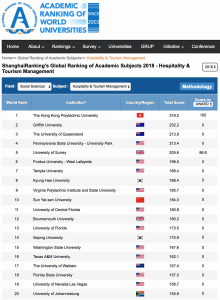



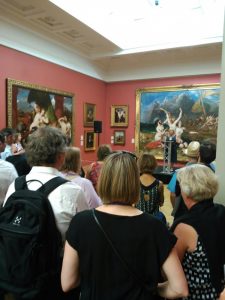
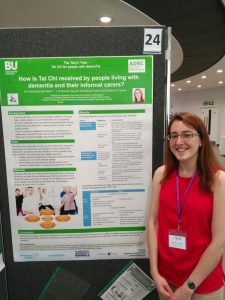

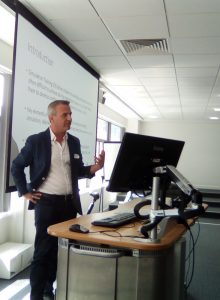
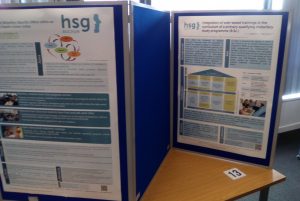
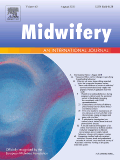
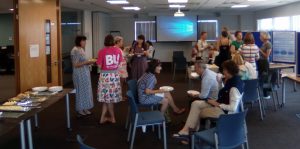
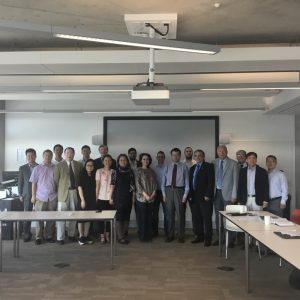
 Professor Genoveva Esteban (Department of Life and Environmental Sciences, Faculty of Science and Technology) in collaboration with the Freshwater Biological Association, is running an Advanced Training Course on Freshwater Taxonomy and Field Identification Skills for PhD students, early-career researchers, and post-grads.
Professor Genoveva Esteban (Department of Life and Environmental Sciences, Faculty of Science and Technology) in collaboration with the Freshwater Biological Association, is running an Advanced Training Course on Freshwater Taxonomy and Field Identification Skills for PhD students, early-career researchers, and post-grads.



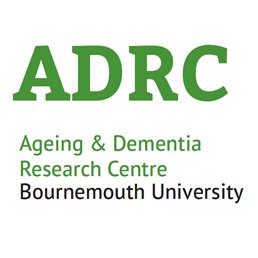 Prof Jane Murphy and Dr Michelle Heward from the
Prof Jane Murphy and Dr Michelle Heward from the 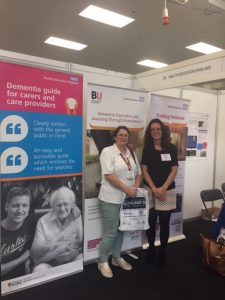 The DEALTS 2 programme was showcased by Jan Zietara, Head of Programme Delivery for HEE, in her presentation on Saturday 9th June as well as on the HEE event exhibition stand. This provided a fantastic opportunity to disseminate the recently launched programme resources, which are now freely available to download on the
The DEALTS 2 programme was showcased by Jan Zietara, Head of Programme Delivery for HEE, in her presentation on Saturday 9th June as well as on the HEE event exhibition stand. This provided a fantastic opportunity to disseminate the recently launched programme resources, which are now freely available to download on the 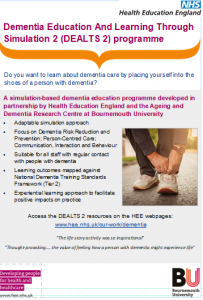 Throughout the two days at the show there were many exhibition stands and talks from a wide range of organisations across the dementia field and it was great to hear ideas from people attending about how DEALTS 2 could be adapted for new audiences – watch this space!
Throughout the two days at the show there were many exhibition stands and talks from a wide range of organisations across the dementia field and it was great to hear ideas from people attending about how DEALTS 2 could be adapted for new audiences – watch this space!
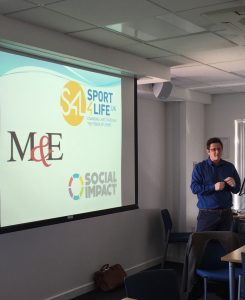

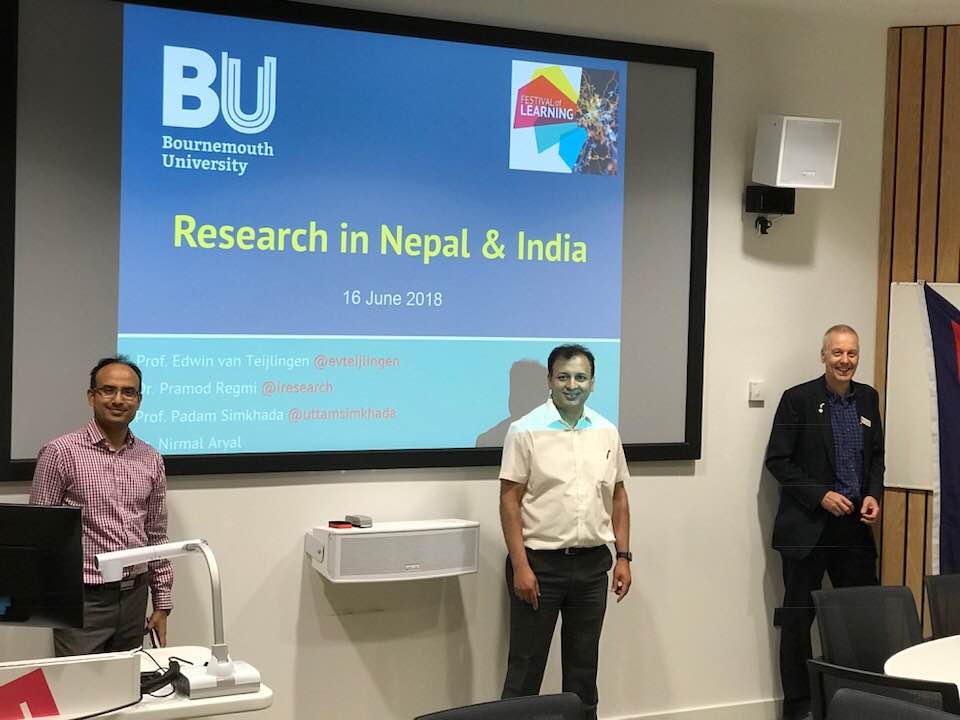




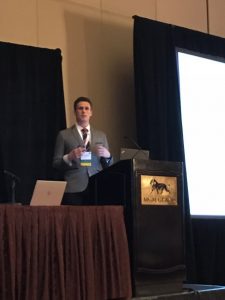
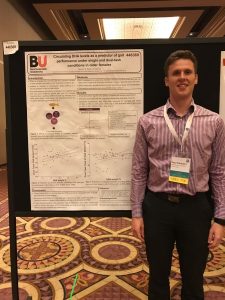 The ISSFAL committee were very accommodating of the younger researchers attending the event. organising a young investigators social to the mob museum and putting together a “meet the professors” breakfast to allow us to pick the minds of some of the leaders in the field. Furthermore I won a young investigators award by ISSFAL, which is given to recognise and encourage excellent abstract submissions, and in turn allowed me to register for the conference at no cost.
The ISSFAL committee were very accommodating of the younger researchers attending the event. organising a young investigators social to the mob museum and putting together a “meet the professors” breakfast to allow us to pick the minds of some of the leaders in the field. Furthermore I won a young investigators award by ISSFAL, which is given to recognise and encourage excellent abstract submissions, and in turn allowed me to register for the conference at no cost.












 FHSS academics teaching in Nepal
FHSS academics teaching in Nepal New weight change BU paper
New weight change BU paper One week to go! | The 16th Annual Postgraduate Research Conference
One week to go! | The 16th Annual Postgraduate Research Conference Geography and Environmental Studies academics – would you like to get more involved in preparing our next REF submission?
Geography and Environmental Studies academics – would you like to get more involved in preparing our next REF submission? Congratulations to three former BU staff
Congratulations to three former BU staff MSCA Staff Exchanges 2024 Call – internal deadline
MSCA Staff Exchanges 2024 Call – internal deadline Applications are now open for 2025 ESRC Postdoctoral Fellowships!
Applications are now open for 2025 ESRC Postdoctoral Fellowships! Horizon Europe – ERC CoG and MSCA SE webinars
Horizon Europe – ERC CoG and MSCA SE webinars MaGMap: Mass Grave Mapping
MaGMap: Mass Grave Mapping ERC grants – series of webinars
ERC grants – series of webinars